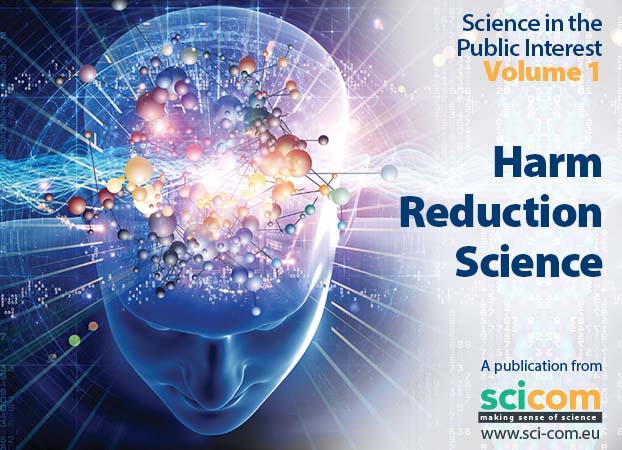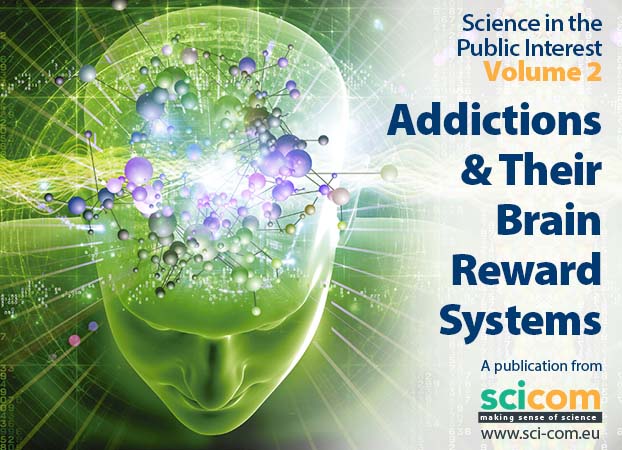08h30 – 09h45, Wednesday 11th July 2018, ESOF 2018 Toulouse.
Conceived and organised by SciCom – Making Sense of Science
Abstract:
This high-level, plenary-style panel will evidence how the goal of a ‘drug-free world’ backed up by a ‘war on drugs’ anchored in ‘science’ and enshrined in the international drug control treaties is both naïve and dangerous. Naïve, in that prohibition has had little impact on drug use with the number of consumers increasing by almost 20% from 2006 – 2013 to 246 million people.
Dangerous, in that prohibition fuels inhuman and coerced drug treatments, massive incarcerations, extrajudicial killings and the death penalty in contravention of international law, stokes the spread of blood-borne viruses, drives human rights abusers for profit and contributes to the drug-related deaths of nearly 200,000 people annually.
Strict drug laws have also escalated public health crises in the form of HIV and hepatitis C epidemics, Eastern Europe and Central Asia being regions of concern. Case-studies on Crimea, Georgia and intra-EU countries will be given. Nevertheless, a welcome shift is taking place in global drug policy, both in terms of public discourse, scientific evidence and policy implementation.
An increasing number of national or local authorities are experimenting different ways of regulating the cannabis market, facilitating opioid substitution therapies and harm reduction interventions, supervising and scaling-up injecting facilities and drug testing services, or implementing alternatives to criminalising those who use drugs. Yet, much still needs to be done to challenge the way societies view drugs and those who use them. If selected, we will bring to the panel the direct testimonies of the mother of a child needing medical cannabis, a person using drugs or a Minister responsible for corrections. We will also focus on what should be of direct concern to the scientific community insofar that prohibition also limits research about the possibly medical utility of illicit substances and builds obstacles to the prescription of pain relief and palliative medication.
Relevance of the selected approaches:
This timely and crucial debate will spotlight the significant positive shift taking place in local, national, regional and global policy-making, both in terms of public discourse, scientific evidence and drug policy implementation. Nevertheless, much still needs to be done to challenge the way societies view drugs and the people that use them. Many do so for enjoyment, some to relieve pain, while others use for traditional, cultural or religious reasons. Cross-cutting approaches on risk & safety, ethics and inequalities etc. will help highlight drug laws as a tool for social control while undermining the right to privacy and the rule of law. On the upside, they will also evidence the benefits of well-implemented decriminalisation.
Co-organised by the Global Commission on Drug Policy Chaired by Kofi Annan & SciCom – Making Sense of Science
 |
INTRODUCTION BY: H.E. Sarah Anyang Agbor (CM): African Union Commissioner for Human Resources, Science & Technology. |
 |
Organizer & Moderator Aidan Gilligan (IRL): CEO, SciCom – Making Sense of Science |
 |
Speaker: Professor Michel Kazatchkine M.D. (FR): Member of the Global Commission on Drug Policy, former Executive Director of the Global Fund to Fight AIDS, Malaria and Tuberculosis. |
 |
Speaker: Sir Nick Clegg (UK): Member of the Global Commission on Drug Policy, former Deputy Prime Minister, United Kingdom. |
Professor Michel Kazatchkine: I will introduce the session by briefly presenting why all global citizens, not just dependent persons, need the support of the Global Commission on Drug Policy. Founded in 2011 by political leaders, cultural figures and globally influential personalities, it currently comprises 24 members. Our common drive is to convince others that the ‘war on drugs’ has not only failed to curb supply and demand, but its so-called “unintended consequences” have had disastrous impacts on public health and security worldwide. Our mission is to promote evidence-based drug policy reforms through the publication of reports, and ongoing advocacy work at the highest level of government. My talk will outline our main positions and recommendations to promote public health, social integration and safety goals, with a strict regard for human rights. I will summarise our “Five Pathways to Effective Drug Policy Reform”. I will paint a clear picture between emphasising the responsible and legal regulation of drug markets and the costs of repressive policies. I will give the hard facts in terms of increased violence, limited access to life-saving harm reductions services and treatment, and worsening public health epidemics such as HIV, hepatitis C and tuberculosis, or the overdose crisis in the US. As Kofi Annan rightly puts it: “drugs have harmed many people, but bad government policies have harmed many more”.
Sir Nick Clegg: I will take a closer look at what is happening inside countries right now. To start, I will discuss the reasons that compelled me to join the Global Commission on Drug Policy, pursuing the position I had taken already as a Member of Parliament and Deputy Prime Minister outspoken about the need to reform drug policy in the UK. I will analyse the current tension in the UK between a national government that appears inflexible in its decision to maintain the prohibitionist status quo, and reforms taking place at the local level around the country with regard to setting up safe injection facilities or heroin-assisted treatment. I will also comment upon the geopolitical situation in the European Union and question why the region’s drug policies remain somewhat dissonant and under the radar, when it should be in a position to lead globally on the issue like it did in the past. Finally, I will highlight some of the major trends worldwide, including those to be commended, such as nascent regulated markets for cannabis in the US, Uruguay and now Canada, and moves by otherwise repressive countries like Malaysia and Myanmar to implement softer punishments. On the one hand, I will call ESOF delegates to action to condemn increased violence and repression in places like the Philippines, Cambodia and Bangladesh.





